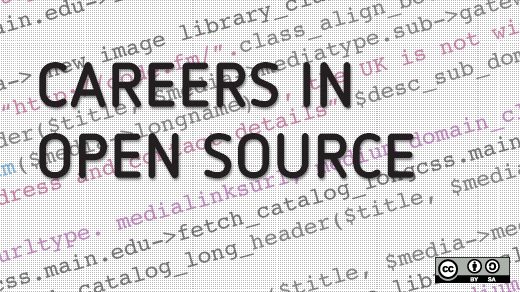Careers
A collection of articles about jobs and careers in open source.
I have been working in the computer business for over 40 years, but the best years have been the last 17 or so working with Linux and open source software. I got into the computer business unintentionally and kind of sideways, but that is a whole other story. I'll tell you about how I got into open source and Linux semi-intentionally and also kind of sideways.
I got started in computers in 1969 when I convinced the company I was working for to purchase an Olivetti Programma 101—one of the first programmable desktop calculators—to assist me with my calculation-intensive job. Soon after that, I spent 21 years with IBM, first as a Customer Engineer (CE) fixing hardware. I then spent some time in Boca Raton, Florida where I wrote the training course for CEs on how to fix the first IBM PC. Later, I spent time as the lead support person for IBM's OS/2 operating system.
After leaving IBM I had my own consulting company helping customers with OS/2. It was enjoyable but I could see by the mid 90's that IBM was going to let OS/2 die. I really liked working at the operating system level but did not want to go the Windows route. One day a friend who worked for a large international company here in Research Triangle Park in North Carolina called me looking for someone to help them with their OS/2 systems. To make a long story short, I eventually took a full time job working for that company on the condition that I be allowed to learn Unix, which they also used to a great extent.
I did take a few Solaris classes and even became a Sun Certified Systems Engineer, but during that time I started hearing about Linux. I could not afford to have a Sun box at home and thought I could use Linux to learn more about the Unix environment. That was certainly true, but I ended up discovering that Linux could be an end in itself. I really decided quickly that Linux was the wave of the future, so over a few weeks I converted all of my computers to Linux. I switched over completely to force myself to learn how to do things in Linux rather than reverting to OS/2 with which I was very familiar.
Things broke—actually it was me breaking things, sometimes intentionally and sometimes unintentionally. And I learned how to fix them, in the process learning more Linux architecture and commands. Ultimately, that led to a few months as an instructor at Red Hat, where I earned my RHCE. After that I spent 5 years at the State of North Carolina working on the email system. I was responsible for writing and maintaining the Perl CGI scripts that provided the administrative user interface to that email system. The administrative interface ran on a small PC with Red Hat Linux.
That job led to a few years at Cisco where I spent about half my time using TCL/Expect to write test programs for Linux based appliances, and the other half as a System Administrator in the lab. I spent a lot of time writing automation programs in BASH for the lab in addition to the test scripts.
I now have my own business again, Millennium Technology Consulting LLC, that provides Linux training and consulting for small businesses in the central North Carolina region. I find this very rewarding, and I can be very selective about the jobs I take on. If there is one thing I have discovered about myself and virtually everyone else I know who have landed jobs in open source, it is that they always have spent a lot of time learning about it on their own.
I think that is, at least in part, due to our very inquisitive nature. We always want to know more. We want to find ways to make that bit of code better, faster, more general, more efficient, smaller, or whatever it may be. For us, it is the journey as much as it is the end. And for many of us, like myself, open source is also a hobby. I spend my time on my own various open source projects the way that some people golf, or sail, or climb mountains. It is where I prefer to spend the majority of my time.






6 Comments